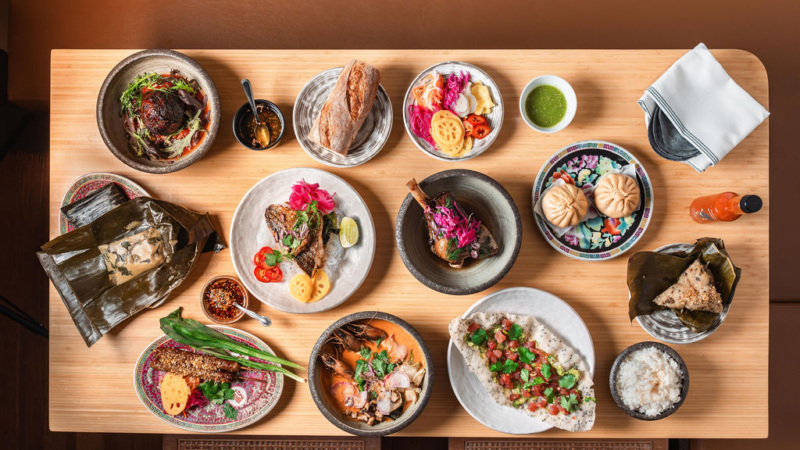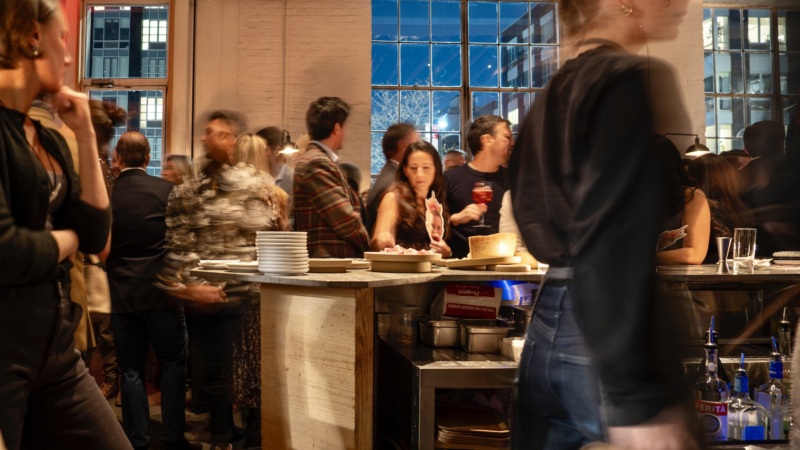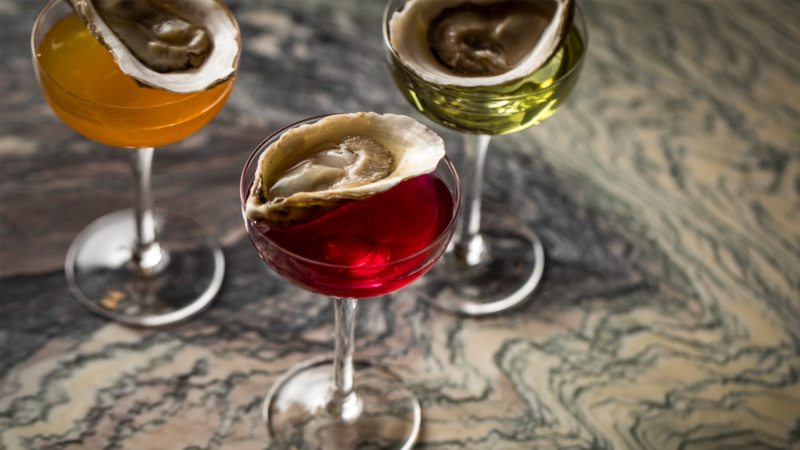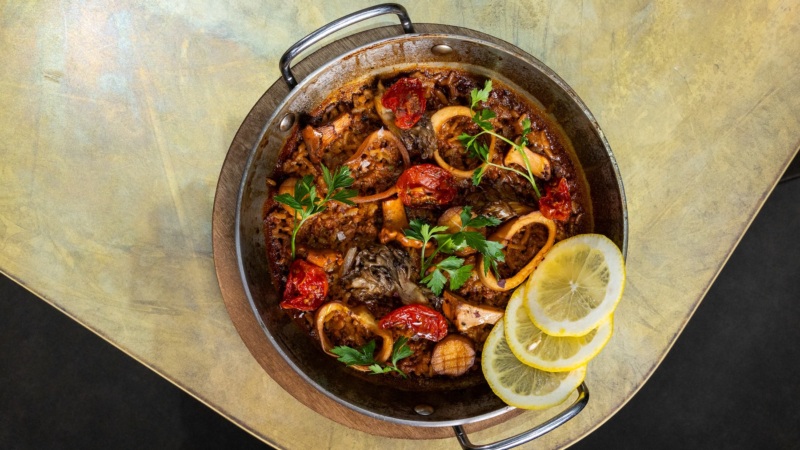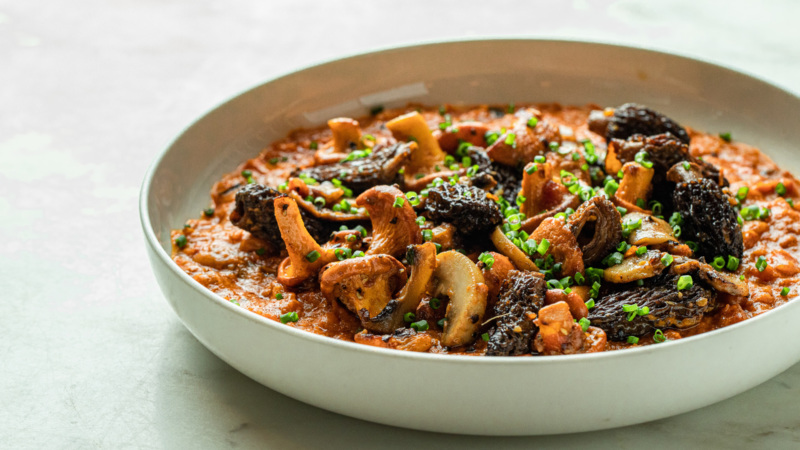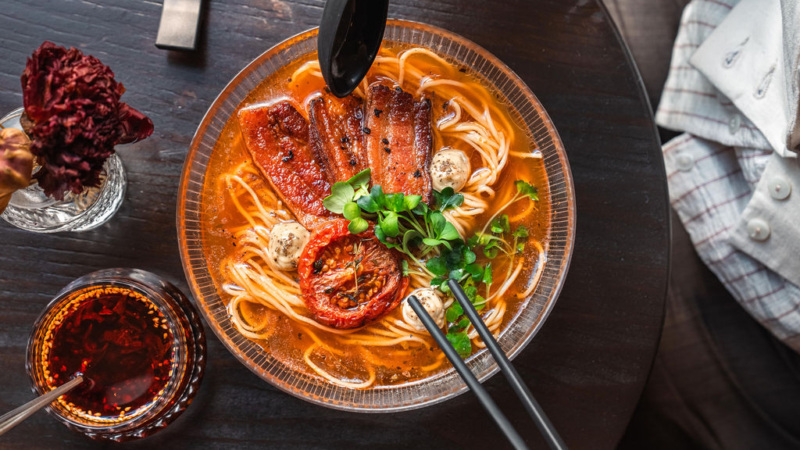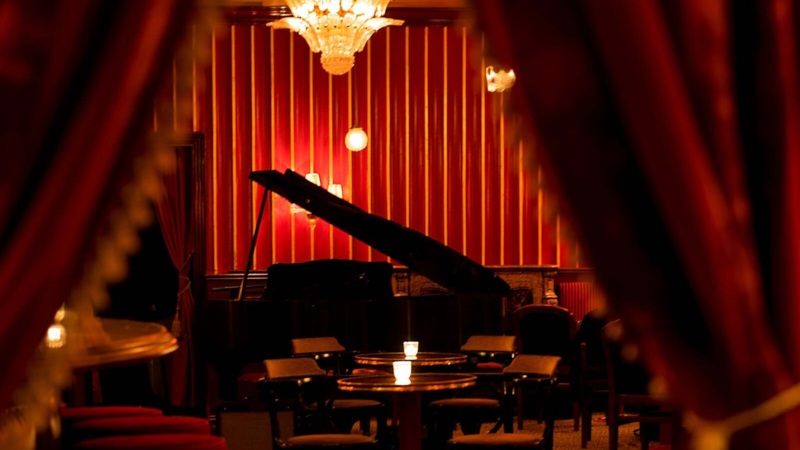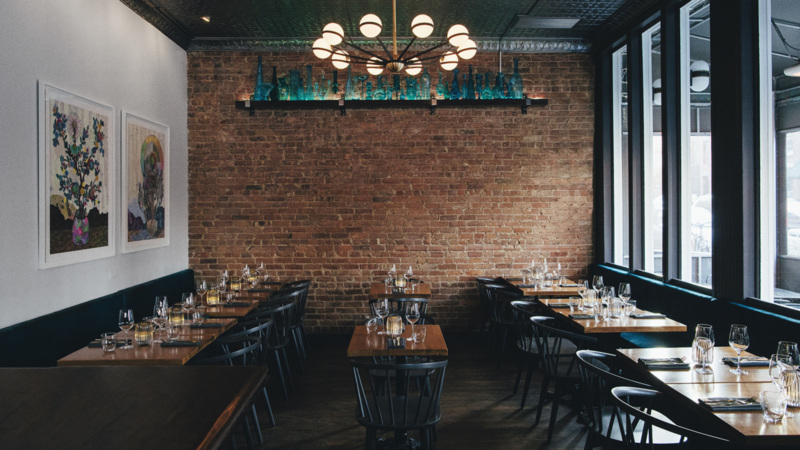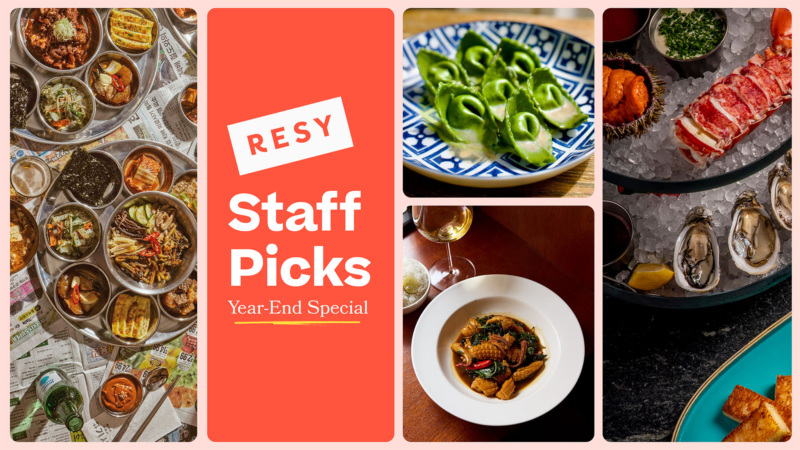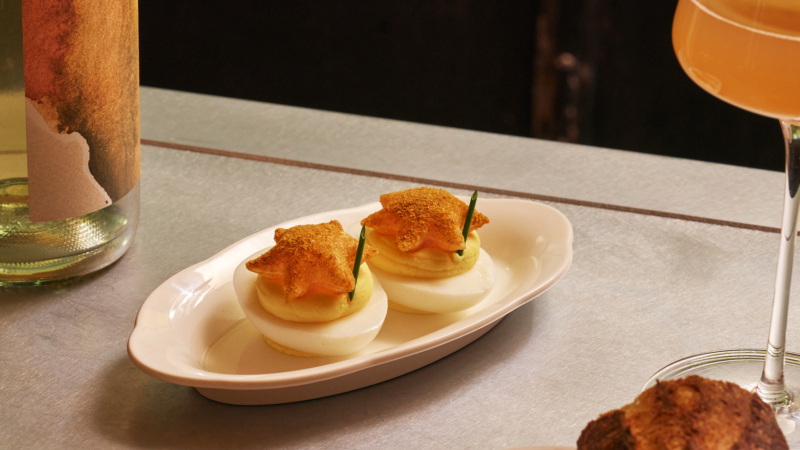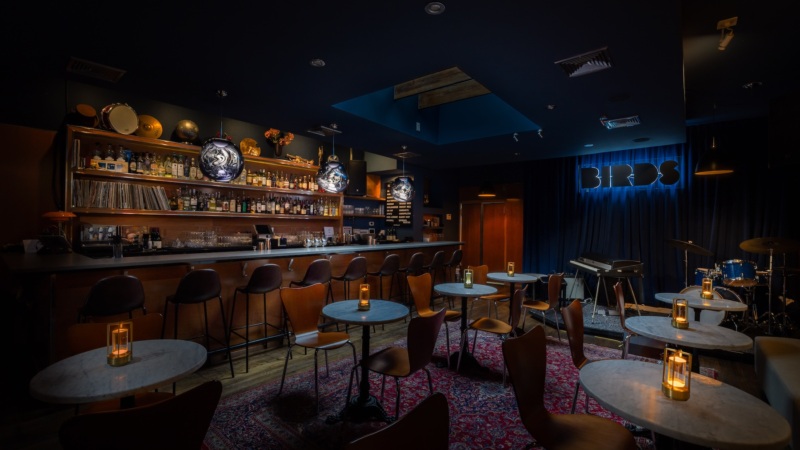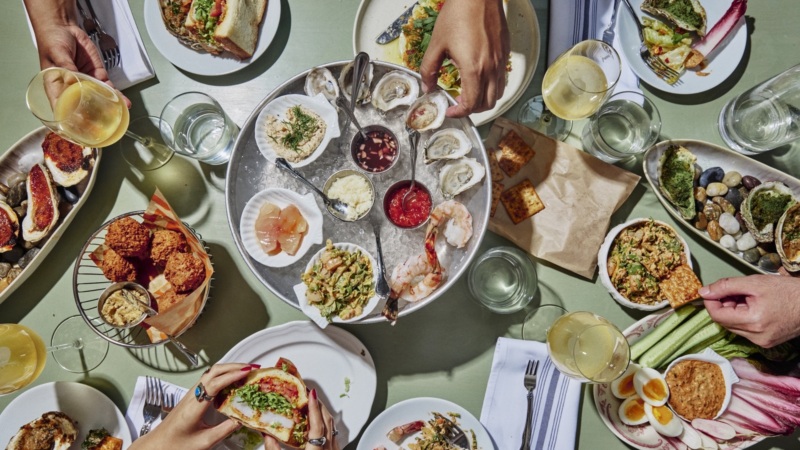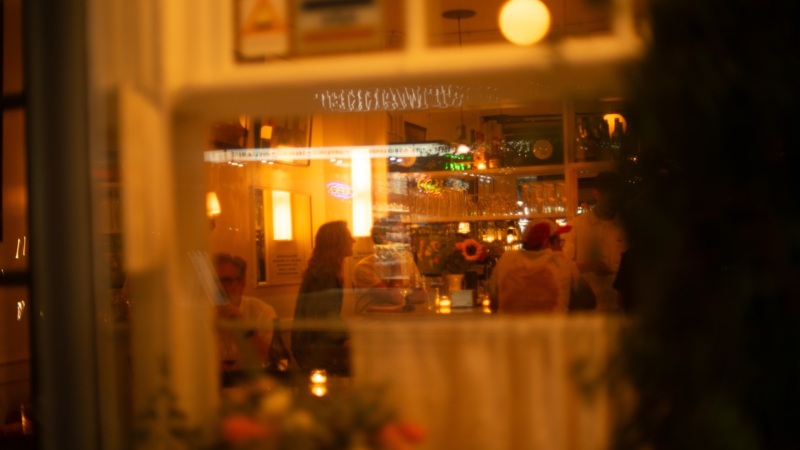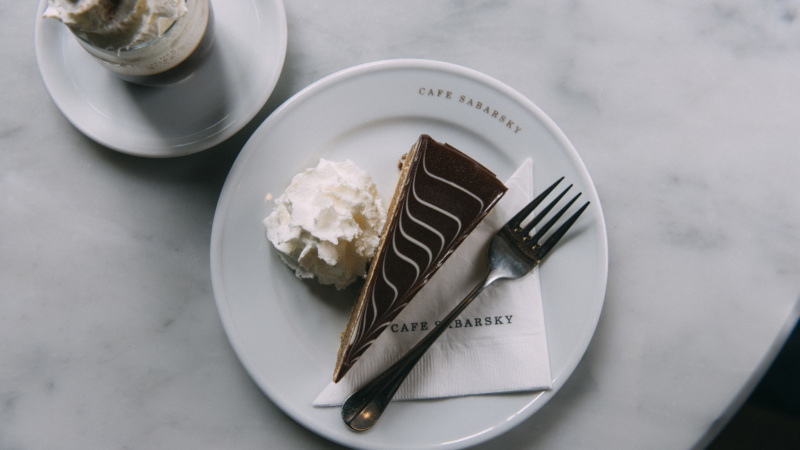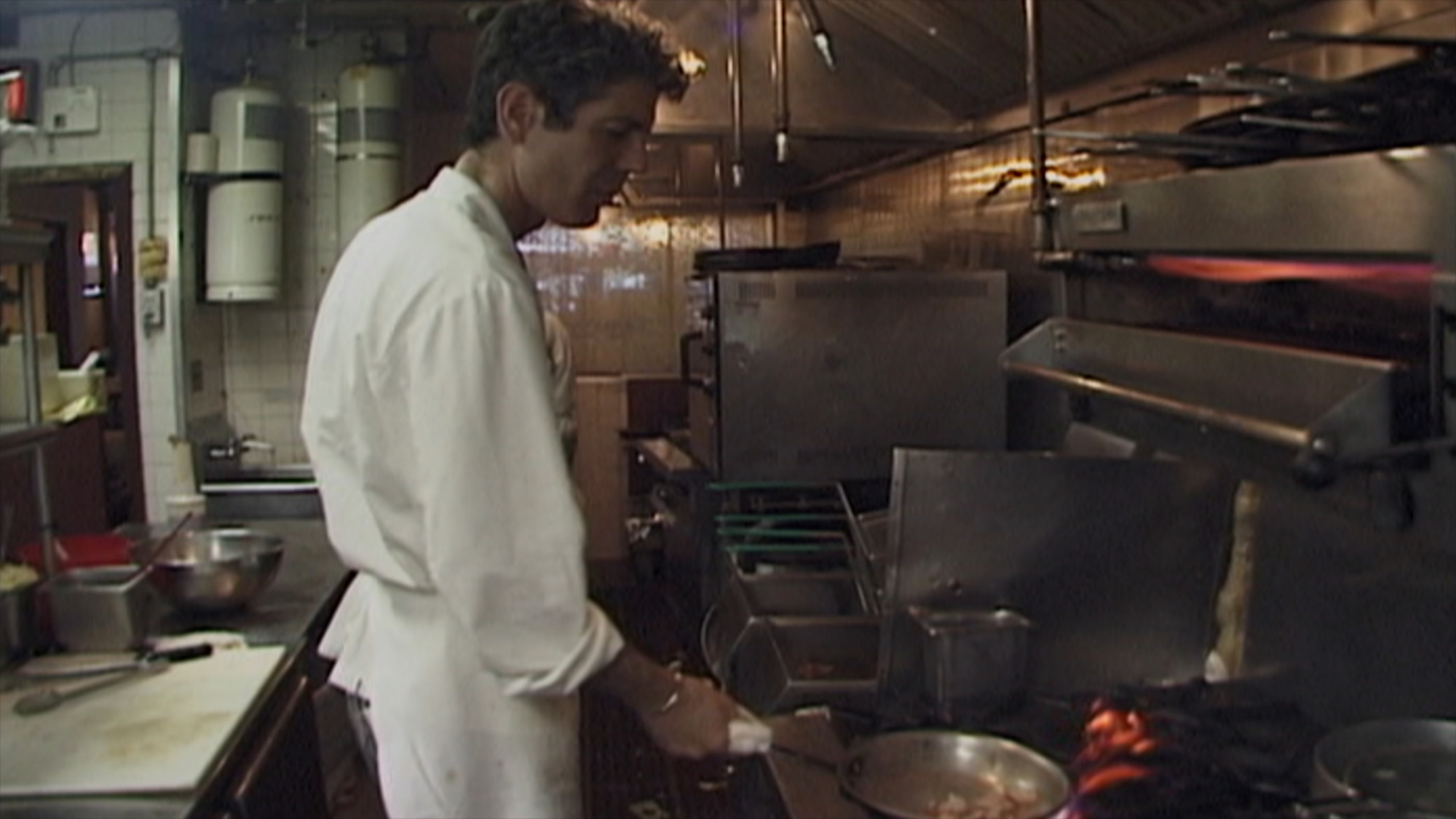
Les Halles Owner Philippe Lajaunie Shares His Memories of Anthony Bourdain
Published:
It’s been 23 years since restaurateur Philippe Lajaunie met Anthony Bourdain, the chef who led the kitchen at his New York City restaurant, Les Halles, before becoming a beloved global phenomenon with his many television series and books exploring the world. It’s been five years since Les Halles closed its doors on Park Avenue. And it’s been three years since Bourdain left us.
This week, Lajaunie finds himself back in New York, inside the kitchen where he and Bourdain once served steak frites and bowls of steaming hot French onion soup to hundreds of diners a day. He’s here to oversee a series of pop-up dinners, commemorating the life of the restaurant’s former executive chef and also, his friend, in conjunction with the release of a new documentary about Bourdain’s life, “Roadrunner: A Film About Anthony Bourdain.”
We had the opportunity to speak with Lajaunie about his memories of Bourdain, and of Les Halles. Here’s what he had to say.
Note: This interview has been edited for clarity and length.
Resy: Have you watched the full documentary yet? If you have, how did you feel after you watched it?
Philippe Lajaunie: Yes, I’ve watched it. It’s an incredibly beautiful movie and I cannot tell you how impressed I am by it, by the work that has gone into it. It’s not just a documentary where people in his life are just lined up and telling their piece. It’s a real movie. It’s incredibly interesting, even to people who didn’t know Tony. It’s a documentary about someone whom we knew, and we had seen on TV, but it’s also a very important movie about mental health. Sometimes, it felt like it was a movie about darkness, and Tony was an unfortunate actor in the movie. Of course, you know, we all wonder what we could have done in time to prevent what happened.
At the same time, everything was so intimate, in a way; I traveled back in time, all along the movie, and it was incredibly emotional.
Thinking of the memories that the film brought up, could you tell me what you remember from the first time you met Anthony Bourdain?
Well, at the time, we had Les Halles in New York, Washington, D.C., Atlanta, Miami, and Tokyo, so my partner who was in charge of the kitchen and food in general, Jose de Meirelles, hired Tony. We needed an executive chef in the flagship, and Jose had invited Tony and his wife at the time [Nancy Putkoski] to have dinner the restaurant before accepting the position to see if the ambience and the style of the restaurant was something that Tony would be comfortable with.
So, I met Tony when he was having dinner at Les Halles with his wife, and he seemed to be enjoying the dinner so much; to me, that’s all I needed. I wanted to see someone who was going to enjoy working there because he enjoyed the concept. He enjoyed the ambience, he enjoyed what we were trying to accomplish and how to maintain it day in day out, which is the most difficult. And so just seeing his face enjoying the food and the service and the ambience that was so unique to Les Halles, I said, “OK, that’s the guy. I hope he’s going to accept the job.” Which obviously, he did.
Did he come highly recommended by other chefs? Or how did you and your partner sort of decide on him to be the executive chef?
At that time, and this was in 1998 so I do not remember all the details, but the procedure was fairly simple: We would place an ad at the time, mostly in the New York Times. And we would select the most likely candidates from the list, then my partners and I would interview them in person, and then they would cook in the kitchen. They would cook a set series of dishes, and then they would cook a series of their own specialties, to demonstrate their style, and what else they could bring to the restaurant, and then there’d be a winner.
So, that was the case with Tony. He had the good dishes, and we had probably two or three chefs do the same thing. And he came out as the winner. But Tony’s own enjoyment of Les Halles when he came for dinner, to me, that was the real click, on top of his cooking abilities.
After you hired him as your new executive chef of the flagship location, what was he like in the kitchen? What kind of a chef was he like?
Well, the rest of the kitchen staff was a very strong team that had been built over years at that point. So the chef was there to bring other dimensions, to make sure that the restaurant was adaptable to new desires from customers and having a very tight operation. The logistics were difficult because it was a rather small place that was extremely busy day in day out from the beginning when we opened in 1990. And he jumped in.
He took the helm very effectively and he was very respectful of the staff. That was something that was also very important to me and my partner: that he was treating everyone with respect, not necessarily being overly friendly, but with respect and, and not being overly demanding and moving things along. He was definitely more subdued and shyer than he was later on, when he kind of built a new persona, but he was very effective. And he was very good to work with.
Was he the kind of chef who would step in on the line when things got in the weeds? Or was he the kind of chef who liked to walk around the dining room and greet diners?
He was the kind of chef who was behind the line all the time. And when things got really difficult, he could step out of the line, to expedite and to supervise the many different departments that are necessary, especially because at Les Halles everything was cooked fresh. There was nothing precooked or precut, or pre-anything; everything was practically made to order. The logistics were very demanding. And he would work most of the time. He would be behind the line, sweating it.
He was definitely not a chef who walked around the dining room. First of all, that was not the style at Les Halles. Actually, it was more of a chef-less kind of restaurant. And he was really honest about that.
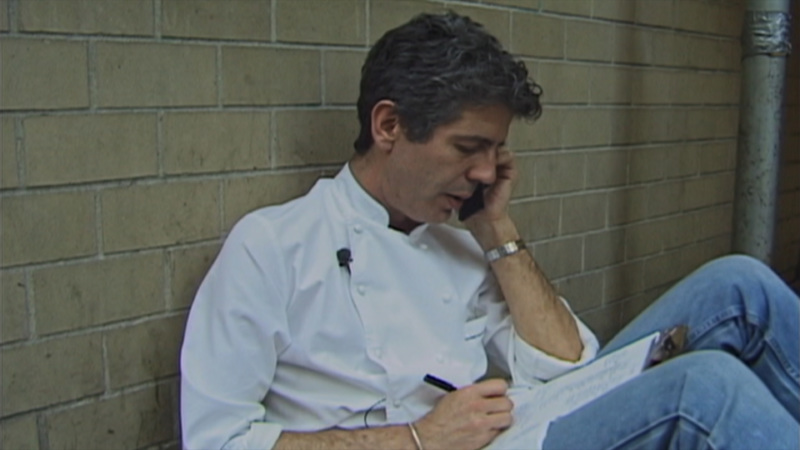

Do you have any personal favorite memories from when he was cooking at Les Halles?
Yes, there were obviously so many moments, and my mind is racing from place to place. But I would say he was always very excited when there was something special that was not necessarily on the menu, and he would pay particular attention to those events and those dishes. He would research it thoroughly and he’d get the best products, and he really enjoyed that.
We were born practically on the same day; he was one day older than me. And his father’s family was from the same region, Bordeaux in France, and so we had a kind of a connection over that, being literally from the same generation, the same year, the same month. We’re from the same region where Tony had his first culinary experiences with the famous oysters.
There was one time when he realized he could get some really fresh smelt, and that’s a seasonal specialty that lasts only a couple of weeks, and is very popular in Arcachon, which is this area south of Bordeaux near the ocean. There’s a very strong culture of seasonal fish dishes there, and this is one of them. So, he made this as a special, and he called me and said, “You won’t believe what I found.” I came over and I had some, and it was so delicious that I ordered a second order, and for me to order a second order of the same thing was unique; that probably never happened before and after.
When “Kitchen Confidential” was published in 2000, that sort of propelled him to fame. Did you know he’d been working on it when he was working at Les Halles, or were you surprised?
When I opened a Les Halles in Tokyo in 1999, there was a French chef there, but I was not so happy with the way he was presenting things. He had his own way, and I wanted things to be consistent with the other restaurants. So that’s when I asked Tony to come to Tokyo with me and spend a week there and, well, you know the story.
I left a couple of days before him and when I left, he gave me two books that he had written, “Bone in the Throat” and “Gone Bamboo,” which I read, and I was so incredibly impressed by them. As we know, it takes an enormous lot to write a book, and they were so well written and so I was so really impressed. I knew that he could write a book.
After we were in Tokyo, he wrote this big piece that was published in the Food Arts magazine at the time, and there was also the New Yorker piece. With his writing being published, I could see him blossoming and just smiling more, or less brooding than he was when he had first come to Les Halles. And I was happy that that he could combine his work at the restaurant and still find the energy and the inspiration to write.
He did mention to me that he was writing a book and that, in fact, he had gotten an advance for it. And he was stunned to have gotten an advance. So yes, I knew he was working on the book when it came out. Of course, I had an advance copy, and I liked it. Like him, I thought that it would be popular with anyone involved in the restaurant business. I never, of course, imagined that it would be the success that it became later on.
Shortly after “Kitchen Confidential” came out is when the “A Cook’s Tour” series started, and you traveled with him to Vietnam for that. You traveled with him a few times over the years for his series. What was he like as a traveler?
Well, at the beginning, he still could not believe that he had convinced the Food Network to pay for “A Cook’s Tour.” And it was total fun. He was not familiar with Asia, a place where I was traveling to regularly, and I was happy to show him around. He was enjoying it. It was just unreal to be there, the two of us, and it was just a wonderful time, and he was happy. He was curious. He was going all over the place, and he wanted to do everything, see everything, taste everything. It was just wonderful.
After that, of course, it didn’t change when he became more of a TV professional, so to speak, when he went to the Travel Channel with “No Reservations.” That’s when exploring the world became a job in a way. And he was always very meticulous and very professional doing it. Of course, there were terrific episodes, and some that weren’t as good, which is normal over so many years, but I could feel that it was a job with all the responsibilities, the weight, and the acting that goes with it. So, he was enjoying all these things, but things were not as free spirited like they used to be at the beginning.
You know, we could discuss at length of what would be happening in his mind at the time, but obviously things were evolving. There was an incredible team around him, the producers, the cameramen, I mean, everyone was so … I cannot believe how good that team was. They were so caring, and they took care of him at all times. And so that carried him over the decades.
Any particular travel memories that you have of him that kind of stand out?
Oh, yes. So many, of course, but I will focus on the on the happiest moments. It’s when we first went to Cambodia, to Siem Reap and Angkor Wat in particular, and went through all the temples. I mean, we all know his fascination with the book, “Heart of Darkness,” and how it became a movie with “Apocalypse Now.” To him, when we were there in Cambodia, he was in his own movie. Tony was someone who was incredibly well read and had an immense library of movies in his mind. Everything was coming to life for him. This was probably, of all our trips and discoveries, this was probably the moment where I saw him happiest and I saw the kid that he had in him. We all have our inner child or soul within us. And this is when I saw it in him, and so it was such a privilege to enjoy that with him at the time.
Was there ever a point over the course of the years when you realized that Anthony Bourdain was going to be this huge star? Did you ever expect him to be as big of a star as he was?
Let’s see, no, I had no expectations. There were no thoughts about what could be and how all this could evolve. I personally do not get really caught up in these kinds of calculations or evaluations; the reality is that whatever happens to us in terms of social recognition, we are still the same. One may choose to play a role when going outside, but things don’t change, and everyone has the same life that they used to have, seen from the inside of course. Outside, money and fame can also shift things, but usually not in a good way for that matter so no, I didn’t expect anything; I really never thought about it.
Tony and I rarely discussed it, and he was always very kind and very authentic to respect the fame. He would always accept to take a picture or sign a book in a very humble way, in a realistic way, and without any affectation, and that was very refreshing. I was happy and impressed that he remained the same and that he was being himself.
Did your relationship with him change at all over the years especially after he left the restaurant?
Our relationship did not really change. The reality is that in the restaurant, early on, I was never really involved with all the logistics and personnel. My role was more to create new restaurants, think about new locations, negotiate the leases, do the openings and do the marketing and so I was never involved with things that he was dealing with and that my partner was working with. So, our relationship, thanks to the trip to Tokyo, was always a bit more outside of the demands of running the restaurant. And if anything, we were kind of close without being intimate. It’s not that we would go out that often together just for the pleasure of it. It would happen, and it would be a good moment, a fun moment. There was, I think, a strong trust between Tony and me, but you know, everyone’s life was evolving at its own pace. And so, nothing changed much.
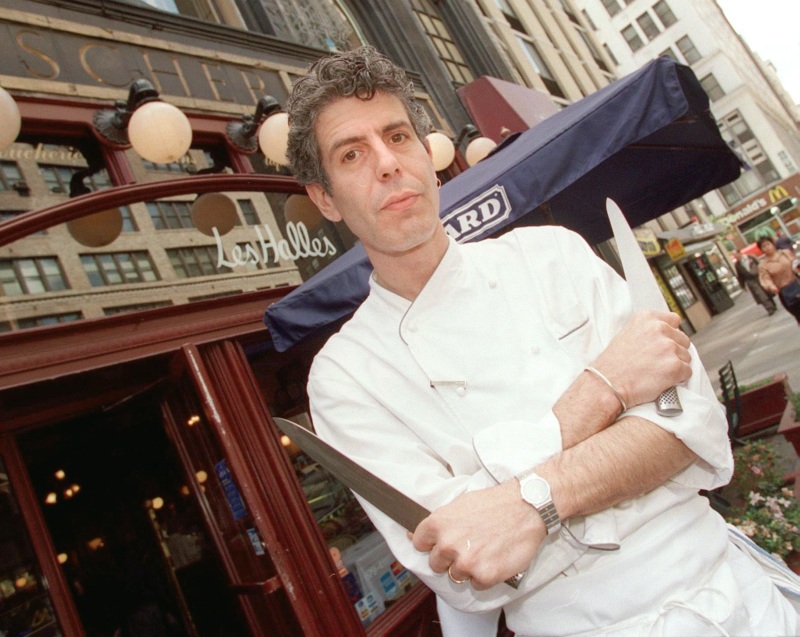

Looking back on the legacy of Les Halles, what do you think made Les Halles so special to so many people?
Well, in a way, Les Halles lasted for 25 years, and those were probably the 25 golden years of restaurant life in New York City. In other words, before that, probably bars were more of the social scene and people would not be paying that much attention to food or how authentic a food could be, or what the concept could be. At Les Halles, the restaurant was borne out of my personal experiences of late nights spent in the brasseries of Paris. Places where all social classes came together, and where food and being together was the objective. I think that was quite unique, and it will remain unique because that was our focus, versus opening a business to find a theme or to impress people with the design of the restaurant or false creativity in food, and so on and so forth. So, I think that personal, authentic experience based on emotional memories was really what made Les Halles so special.
What do you think made Anthony Bourdain so special to so many?
I think he was, in a way very similarly to Les Halles, he was just authentic. There was no nonsense, there was no BS. He would say things as they are, whether you like it or not, not trying to offend anyone, but just saying things, and you knew what you would get. In a way I could describe Les Halles with the same word. And that’s what, in a way, made him a success because he was very natural, blunt, but honest and kind. And you saw that in his body of work, where he can say things very bluntly, but if they are true — and they are — finally they’re all what the truth is. And so he was that person: kind but blunt, and, honest.
Deanna Ting is a Resy staff writer. Follow her on Instagram and Twitter. Follow @Resy, too
